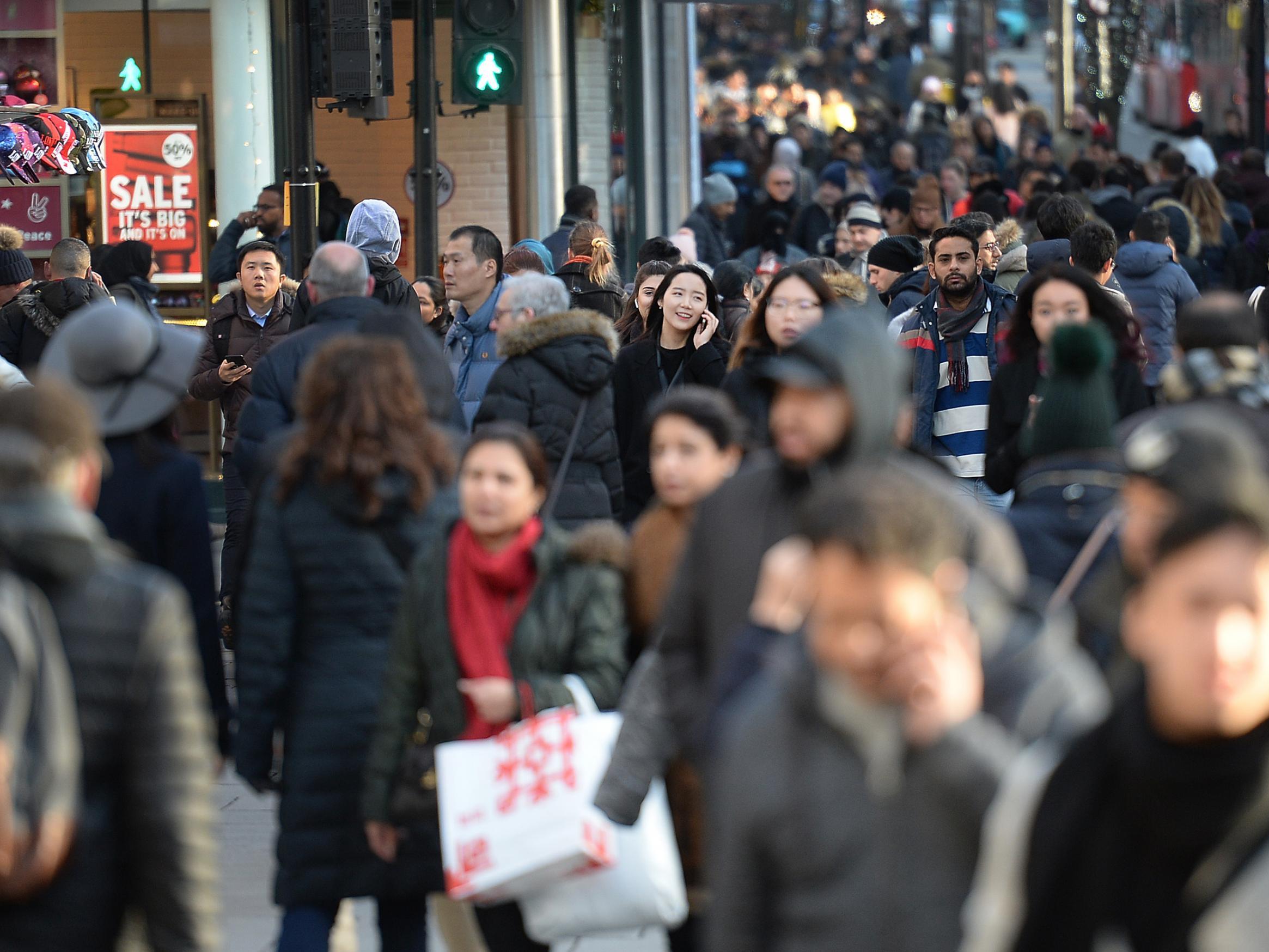The internet hasn’t killed high streets – but they might not survive if we don’t put them to good use
Retail is going through its biggest revolution since Victorian times. It is slow, but it need not end in desolation and dereliction

Sir John Timpson was a wise choice to chair the expert panel on rejuvenating Britain’s mostly ailing high streets. His family firm still owns the cobbler and key cutter Timpson chain, and he has half a century of experience in retail. The other members of the high streets panel are equally well qualified. Their recommendations reflect their considerable knowledge and expertise – and they are infused with a spirit of optimism that is depressingly rare today.
Their recommendations are all logical and make relatively few calls on the taxpayer. There’s no harm in every town centre having a champion, and for groups to spread innovative ideas and “best practice” advice. The panel is clear that one of the principal ways in which successful town centres can turn themselves around is through becoming destinations for recreation as much as retail – adjusting to the inexorable impact of digital commerce.
After all, no one can enjoy a glass of wine or a theatre performance down a telephone wire, even with the fastest broadband. The panel is also right in stressing that town centres must become more accessible to visitors. That means a hard rethink about parking and road restrictions. While surveys often suggest that consumers like traffic-free environments, the recent experience suggests the availability of free and plentiful parking at out-of-town retail parks offer speed and convenience.
The pedestrianisation of Norwich city centre, a long-running Alan Partridge joke, is now a genuine matter of concern, as well as in many other towns and cities.
Planning restrictions can be relaxed – but not at the expense of obliterating historic and handsome older facades. A beautiful, intriguing town centre with a proud heritage is a much more welcoming place to spend time than some identikit glass and concrete mall.
Again, older market towns have shown how such a proportionate and pleasing built environment can help business; the lifeless malls of the 1960s and 1970s have not aged nearly so well. Opening up riversides and canals for example, can transform a district, as Manchester and Birmingham have proved.
Deindustrialisation has left these cities cleaner, with more attractive spots to spend a summer afternoon, an unexpected development. History has lessons for every town planner, and the examples of successful experiments, as in Holmfirth, Shrewsbury, Bristol and Altrincham, are also there to be followed.
So there is much that can be done and would not require billions more of public funding to protect the tax base and the business rates income of local and central government.
However, it is tempting to wonder what might have happened had the controversial Mike Ashley been asked to run the panel. This is the man who recently told MPs that the internet is “killing the high street”, which he said was “at the bottom of a swimming pool, dead … the patient is dead”.
In fact Mr Ashley, whose high street interests range from Sports Direct to Debenhams to Evans Cycles, did think it could be revived, through innovation but also by taxing the internet giants.
This, as HM Treasury has discovered, would have to be done rather cautiously as it might not prove effective – so many companies can shift operations and money flows abroad, or simply close down in the UK if it becomes uneconomic.
It would not be sensible to attempt to “save” the high street by pushing up prices and reducing choice in e-commerce. Although the public finances will face new challenges after Brexit, reducing taxation and rates on bricks-and-mortar establishments rather than increasing them in footloose web outfits might yield better results.
What does not seem to have attracted sufficient attention from many of the interested parties is what might happen if market forces were allowed to proceed.
There are precedents for this next door, so to speak. In the last decade, many thousands of bank branches, pubs and churches have closed down and many – though not all – have found alternative uses. In some cases there is something of a merry go round – banks turning into bars, old pubs being converted into flats or shops, and churches becoming warehouses, gyms or restaurants.

The obvious answer to much of the high street’s gloom is to attract more people, by all means. But it is also important to repopulate them now that inner-city factories and service industries have drifted away.
Of course some premises will not be suitable for conversion into accommodation, and not everyone wishes to live in a flat without a garden. But, again, imaginative town planning and leadership for entrepreneurial councils could steer the market forces that will, in due course, resolve alternative uses for these acres of real estate.
And what will non-polluting and safe electric autonomous cars and buses mean for town centres? How can these coming technologies be turned to their advantage?
The high street is going through its biggest revolution since Victorian times, but it is a slow one, and one that need not end in desolation and dereliction. There is life at the bottom of the swimming pool – which might be a good alternative use for some of the larger empty sites; room for a car park too, no doubt.
Join our commenting forum
Join thought-provoking conversations, follow other Independent readers and see their replies
Comments
Bookmark popover
Removed from bookmarks